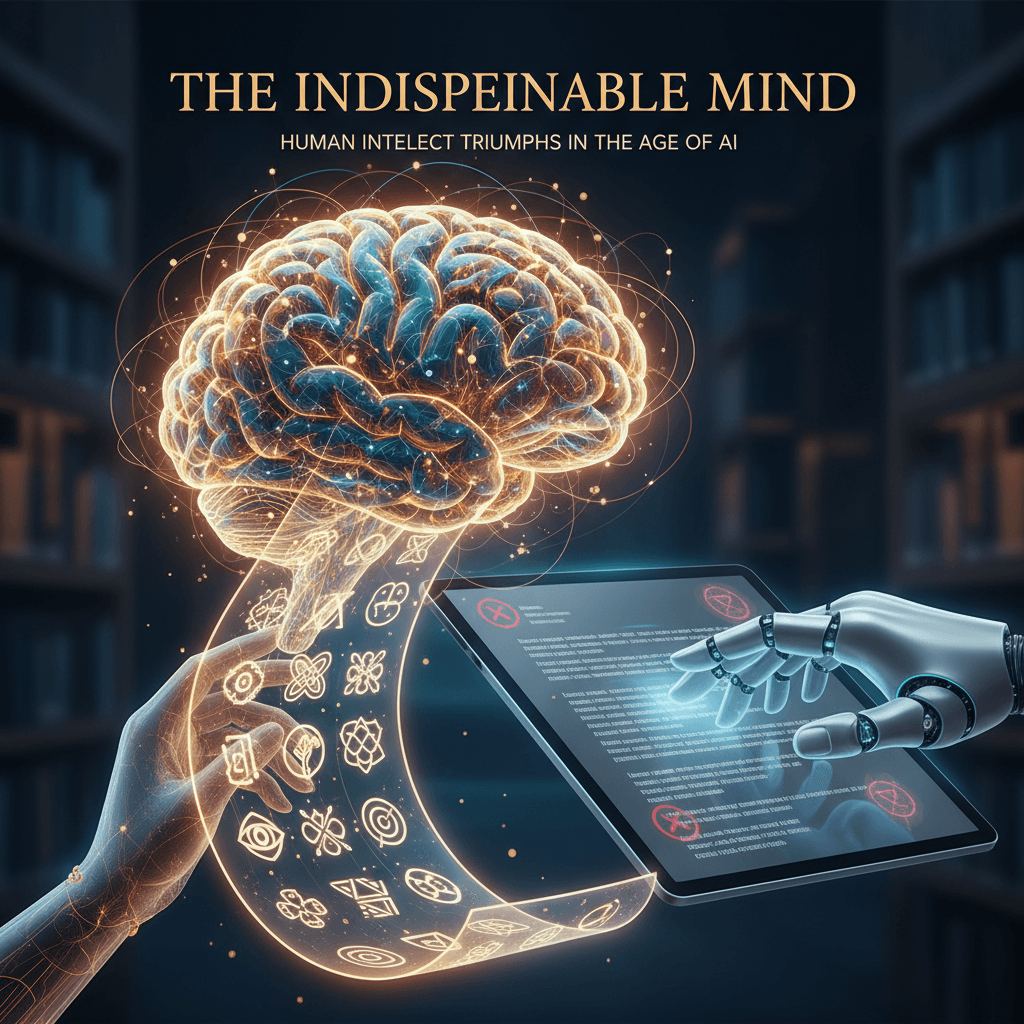Human Writers Thrive as AI Fails Academic Originality and Critical Thinking
The critical gap in AI's originality, depth, and ability to avoid detection ensures human writers' continued relevance.
November 24, 2025

Despite the widespread adoption of generative AI tools in academia, with a significant percentage of college and high school students utilizing them for schoolwork, a notable trend persists: the continued reliance on human-powered essay writing websites.[1][2] While platforms like ChatGPT offer unparalleled speed and convenience in generating text, they fundamentally lack the nuanced understanding, critical thinking, and originality that are the hallmarks of genuine academic work. This gap in capability has ensured the sustained relevance of services where human experts craft bespoke academic papers, addressing student needs that AI, in its current form, cannot meet. Students are increasingly turning to these services not as a first resort, but as a necessary alternative when the limitations of artificial intelligence become apparent, particularly for high-stakes assignments that demand more than a superficial summary of information.
A primary driver for students choosing human writers over AI is the critical need for originality and the avoidance of AI detection.[1][2][3] Modern educational institutions overwhelmingly use sophisticated software like Turnitin, which now includes capabilities to identify AI-generated content.[1] Students report that even after attempting to modify AI-produced text, essays are frequently flagged, posing a significant risk to their academic integrity.[3] Human writing services, in contrast, provide papers written from scratch by subject matter experts, ensuring a level of originality that AI struggles to replicate.[4][5] Artificial intelligence models are trained on vast datasets of existing text, which can lead them to reproduce common ideas and phrases, resulting in content that, while grammatically correct, often lacks a unique perspective and may trigger plagiarism concerns.[6][3] Professional writers, however, can engage in genuine research, synthesize information in novel ways, and craft arguments that reflect a deeper, more personalized understanding of the topic, thereby bypassing the predictable patterns that AI detectors are designed to spot.[7][8]
Beyond mere detection, the qualitative difference in content is a significant factor. Academic experts and even students themselves recognize that AI-generated essays are often superficial, lacking the depth and critical analysis required for higher education.[9][3][10][11] AI tools excel at compiling and summarizing information but falter when it comes to synthesizing complex ideas, developing nuanced arguments, or engaging in the kind of critical thinking that is central to academic inquiry.[12][13][14][15] This is particularly evident in research-intensive disciplines where papers must present advanced, well-supported arguments.[1] Furthermore, AI models have been known to "hallucinate" facts and generate inaccurate or entirely fabricated citations, a critical flaw in an academic context where source credibility is paramount.[6][14][16][7] Services like EssayPro and WritePaper are often chosen for their ability to deliver insightful and creative content across a wide range of subjects, leveraging the specialized knowledge of human writers who can accurately research and interpret complex topics.[1]
Customization and the ability to capture a student's authentic voice are other key areas where AI falls short. Essay writing services often facilitate direct communication between the student and the writer, allowing for a collaborative process.[1] This enables the final product to reflect the student's own ideas, opinions, and even their unique writing style, which is crucial for personal statements or application essays.[1] AI, by its nature, produces generic text and cannot grasp the subtle intricacies of an individual's perspective or the specific, often complex, instructions of an assignment.[1][7] Platforms such as MyPaperHelp and PaperWriter emphasize this personalized approach, allowing clients to provide samples of their work and detailed outlines to ensure the final essay is tailored to their specific needs and voice.[1][5] This level of personalization is something algorithms, which operate on patterns and generalities, are currently unable to offer.[15][10]
The continued success of these human-centric platforms carries significant implications for the AI industry's future in academic writing. While AI has proven to be a useful tool for brainstorming, outlining, and basic research, its limitations in producing high-quality, original, and critically-sound academic papers are clear.[1][2][17] This suggests that the future is not necessarily a replacement of human writers by AI, but rather a hybrid model where AI acts as an assistant, augmenting human intellect rather than supplanting it.[18][19] For the AI industry to make deeper inroads into this market, it must address the core issues of originality, factual accuracy, and the ability to perform genuine critical analysis. Until generative AI can replicate the unique cognitive abilities of a human expert—to not just process information but to understand, interpret, and create new knowledge—students seeking high-quality, reliable, and safe academic assistance will continue to choose the expertise and craftsmanship of human writers.
Sources
[3]
[9]
[10]
[11]
[12]
[15]
[16]
[17]
[18]
[19]